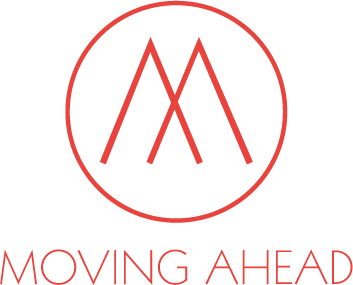Meet dame stephanie shirley
Dame Stephanie Shirley: 10 Lessons For My Younger Self
Child refugee, tech pioneer, philanthropist, businesswoman, mother. Dame Stephanie Shirley is all of those and so much more. At Moving Ahead’s 2020 Gender Balance Summit, she revealed her life lessons . . .
Dame Stephanie Shirley came to the UK in 1939 as part of the Kindertransport programme that helped thousands of children to flee Nazi-occupied territories across Europe. Reflecting on that extraordinary experience, she says, “That traumatic start made me determined to make mine a life worth saving.”
Dame Stephanie would go on to work for the Post Office designing computers and writing code but adds, “I found myself, again and again, coming up against the mild sexism, which we’ve learned to call the ‘glass ceiling’.
“That is what triggered me, in 1962, to set up a software company of women, designed by women; the sort of company I would like to work in. It was revolutionary. There were many women experienced in computing who had left the industry, as was the norm back then, to get married or when their first child was expected. And they were keen to work.”
It was not without its challenges. When she wrote to potential investors, nobody was willing to back a female-owned company. So she changed her name from Stephanie to Steve, rewrote those letters, and got investors on board. She was able to retire from her company aged 60.
“By then it was a quarter owned by the staff, floated on the main Stock Exchange, and I and 70 of my colleagues became millionaires,” she says. “I’m enormously proud of having got the company into pure ownership and then managed succession when many entrepreneurs had failed, so killing off their own brainchild.
“The final stage of my work life is as a venture philanthropist. I’ve given away some £70 million by investing in social ventures, mainly in the two things I know and care about: information technology and autism, which was my late son’s condition.”
She set up three charities that, between them, now employ over 1,000 people.
She says, “It’s been a long and often difficult journey. So what do I know now that I wish my younger self had known?” Here she shares her 10 pieces of wisdom.
1. Respect yourself
I used to dress in a dark grey skirt suit and creep around like a mouse hoping my voice wouldn’t squeak. I had no self-confidence whatsoever.
When I look at today’s young workers, you all present beautifully and seem to be very confident. It’s only when I get to know individuals do I realise that underneath many of you are shy, worried about things, and not respecting your own achievements and potential.
2. Enjoy the little successes
We’re not all going to be millionaires, we’re not all going to be leaders in society. I would say to my younger self ‘Why didn’t you bask in that first contract, that unexpected success?’ Revel in them rather than focus on any flaws. Enjoy.
3. Take risks
Confidence allows you to take risks. Don’t wait for the perfect moment, the perfect candidate, the perfect relationship. Take a risk and make it succeed. I took a risk when I appointed a much younger applicant for a senior position and it proved to be a success. And with today’s emphasis on innovation, age and experience are less valuable than they used to be.
4. Learn from your mistakes
Part of that confidence comes through learning from your mistakes, facing up to them, making sure you don’t repeat them. Managers talk about harvesting from our errors. For example, my pricing started off wrong and stayed wrong year after year. It was profitless prosperity. But it did get us market share!
5. Ask yourself, ‘What is the worst that could happen?’
Once you have tackled that question, then everything else becomes dead easy. I remind myself of this tactic every time I face a difficult situation.
6. Separate your private life from your business life
I wish I’d understood this because I lost a couple of friends by thinking also to employ them. It’s okay when a colleague turns into a friend but not the other way round.
7. You can’t do it all on your own
We each work hard and try to improve our performance but nobody does anything by themselves any more. It is all a matter of teamwork. Surround yourself with people who are smarter than you - my colleagues will confirm that - and that you like but not with people who are like you. Also, always be kind. Remember that one harsh, barbed remark can be costly and it can take weeks for relationships to recover.
8. Look after yourself with a healthy selfishness
I speak from bitter experience. I finished up in hospital because I kept on and on and on looking after my autistic son and ignoring my own emotional and health needs.
9.Think strategically
I went on doing my job as best I could without thinking about strategy. I was concentrating on doing things right rather than doing the right thing and thinking about what I wanted to do rather than who I wanted to be. Only you can determine what sort of person you are. That’s a lesson which took me too long to learn.
10. Success, whatever success means, can only follow self-confidence
I learned some tricks when I was younger. When networking, rather than looking at a room and thinking ‘I can’t face meeting at these strangers’, get there early and meet others one by one rather than en masse. If there is one lesson I want to share with you it’s that there is always a way around a problem.
Password: Equal2020



